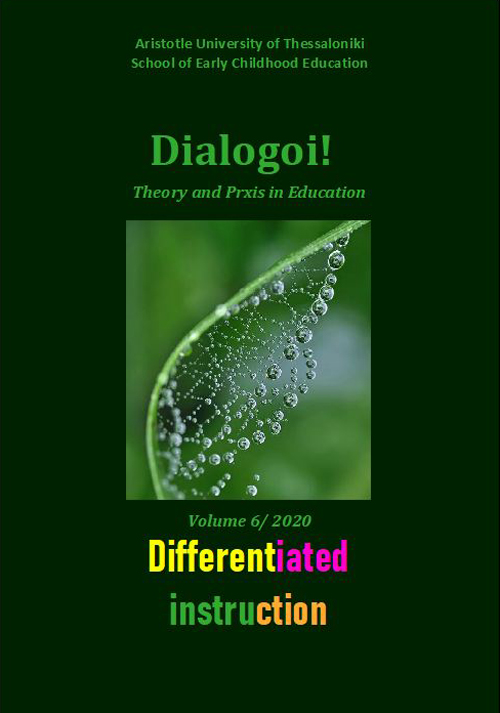Designing transmedia learning environments for inclusive education

Abstract
School environment plays an important role both in learning and in child development. A learning environment must seek to promote learning as a dynamic activity as well as to support cooperation. Through semantic. Education of students with special educational needs (SEN) is of particular interest and challenging, because although students may have common characteristics according to their diagnosis, it nevertheless requires personalized learning approaches. Personalized learning is an innovative trend in many educational settings, such as inclusive environments, which requires the adaptation of teaching methods. These methods meet the requirements of 21st century pedagogy, differentiated pedagogy and universal design for learning. In a fully personalized environment, learning objectives and content, as well as the method and pace of teaching, vary from student to student. Personalization is a broader umbrella term that includes both differentiation and individualization at the same time. In a personalized context, a unique educational approach to facilitating the acquisition, maintenance, and generalization of new knowledge and skills in the real-world environment proves to be weak due to students' individual differences. This weakness underlines the concept of a differentiated pedagogy that is more likely to approach each student than the traditional "one-size-fits-all" method. For the optimal result of a modern pedagogical approach, it is necessary to use modern technology, with affordable equipment such as tablets and smartphones, and easy-to-use applications that can support teachers and students anywhere and anytime. The cutting-edge technology supports content differentiation and emphasizes the creativity of teachers and students. Augmented reality (AR) technology and its supportive devices make it possible to implement mobile technologies in collaborative learning, changing the educational experience. AR applications provide motives, perceived enjoyment and collaboration between students and teachers and can offer multiple benefits by enhancing effective teaching through participatory learning experiences. Given that teachers are considered the lever of any educational innovation, their views on barriers to the introduction of digital learning tools in the classroom, such as lack of training, equipment and teaching materials, are taken into account. Through our work, we aim to provide teachers with the know-how to access any educational content with easy AR applications that they will design and develop with their students. This process involves the whole class, students and teachers, but also students' families in the line of the principles of personalized learning. School community can get involved and co-create their own videos together and easily program their own AR applications. When students are familiar to the characters and environments it is easier for them, especially for those with autism spectrum disorders, to identify with the character of the video and take advantage of the possibilities of video self-modelling in the context of the video-based intervention (VBI). Our expectation is to offer educational ideas both for the differentiation of educational materials and for the implementation of inclusive education, taking advantage of the possibilities of technology. In this light, we present the design and development process of “WakingUpIntheMorning”(WUIM-AR) based on augmented reality, which in combination with traditional puzzles and gamification techniques define the field of transmedia learning. WUIM-AR was designed for achieving the daily living skills and for collaboration between students with SEN and their classmates. The evaluation of WUIM-AR application by experts and students with SEN was positive and their suggestions were incorporated and improved the final version of the application. Future work focuses on evaluating WUIM-AR by teachers and students in inclusive classes.
Article Details
- How to Cite
-
Καϊμάρα Π., Οικονόμου Α., & Δεληγιάννης Ι. (2020). Designing transmedia learning environments for inclusive education. Dialogoi! Theory and Praxis in Education, 6, 239–286. https://doi.org/10.12681/dial.23330
- Issue
- Vol. 6 (2020)
- Section
- Special Theme

This work is licensed under a Creative Commons Attribution-NonCommercial-ShareAlike 4.0 International License.
Authors who publish with this journal agree to the following terms:
- Authors retain copyright and grant the journal right of first publication with the work simultaneously licensed under a Creative Commons Attribution Non-Commercial License that allows others to share the work with an acknowledgement of the work's authorship and initial publication in this journal.
- Authors are able to enter into separate, additional contractual arrangements for the non-exclusive distribution of the journal's published version of the work (e.g. post it to an institutional repository or publish it in a book), with an acknowledgement of its initial publication in this journal.
- Authors are permitted and encouraged to post their work online (preferably in institutional repositories or on their website) prior to and during the submission process, as it can lead to productive exchanges, as well as earlier and greater citation of published work (See The Effect of Open Access).


